In defense of inefficiency
Not an obstacle to progress but a vital rhythm, inefficiency is devoted to the unfolding of life in all its unruly, unpredictable, profoundly necessary fullness.
Last winter our neighbor discovered a secret society of cats: twenty ferals haunting the Garbaj Mahal, a collapsing, abandoned house just up the road. Golden eyes peeked from hoarded mounds of filth, an occasional question-mark-tail echoing our disbelief, What in the…? Why? How? We hadn’t planned to intervene. The world groans with neglect and this seemed no different. But as the days folded into frost and the cats—pregnant, limping, leaking life—revealed the depth of their need, we found ourselves called to action. Not by efficiency or strategy, but by something softer, more enduring: a refusal to turn away.
At first, it seemed simple: take turns each week to offer kibble, care, and a dependable rhythm in their scrappy lives. But feeding wasn’t enough. The kitten-kin would multiply and so, too, their suffering. We made calls, countless pleading calls, but shelter after shelter replied the same, “No room. Too many. Sorry.” More concerned with grant fulfillment and resource consolidation, efficiency’s blunt refusal left us fumbling for alternatives. It wasn’t until we found a smaller rescue, Oregon Friends of Shelter Animals, that the tide began to shift. They had no room either, but something else. A willingness to try.
Their plan? Traps, patience, veterinary care, and, at last, homes+laps or barns+mice, depending on each kitty’s temperament. It sounded like salvation.
But have you ever tried to rescue a feral cat?
Furred frenzy ensued, the cats’ trust as fickle as the weather threatening their lives. For three months, we entered chaos, each tinned tuna opening further the raw stench of our own longing. One rescue at a time. Three rescues at a time. No rescues at a time. We showed up with hope and went home with doubt. Each trapped body a burst of violent trepidation that punctuated our uncertainty. What if we are wrong to intervene? What if we are too late? Week after week, muddy and shivering, we beckoned with timid voice, “Here kitty, kitty, kitty,” as if the infinite waste could pull us, too, from comfort into collapse.
But inefficiency held us in her inexorable grip, insisting that patience and gentle yielding mattered more than precision or haste. Stay, listen, tend, wait. She asked us to surrender tidy agenda and instead follow the cats’ instincts, each one an encounter with uncertainty, impatience, futility, and despair. A maddeningly slow, non-linear process untranslatable to human clock. Yet what we call inefficiency, nature embraces as her most extravagant feature. Peacocks do not fan their tails for utility. Bees do not dance for precision. Even a dolphin carries her dead calf for days, as if to insist: this, too, matters—tracing the impossible boundary between grief and love, inefficiency and purpose. A vital rhythm, inefficiency devotes herself to the unfolding of life in all its unruly, unpredictable, profoundly necessary fullness.
One little meowster, O Henri, took to us immediately, bonking our hands with affectionate abandon. He was easy to catch, trust woven into his DNA; sometimes love does not need to be coaxed, it simply arrives. When we brought him to the clinic, we learned “he” was a very pregnant “she.” O Henri(etta) became our talisman of hope, greeting us each time we delivered another rescue, her drooling kisses inefficiency’s generous reward—a wet, lasting bond impossible to conceive by more! faster! quicker! means.
Others were harder. Greyjoy, a limping shorthair, eluded us for weeks. Each day, he’d shuffle away through a broken window, his exposed ribs cruel evidence our efforts, for some, were in jest. When we finally lured him into a cage, he yowled the entire drive to the clinic. I sang to him through tears, promising a future that wasn’t mine to give: “It’s okay, you’re okay. Everything will be okay.” But it wasn’t. A bullet had shattered his pelvis, his little body beyond recovery. Greyjoy’s last meal was warm as his spirit leaned toward another, more immeasurable warmth. In his death, inefficiency delivered us: to grief, to gratitude, to the unbearable beauty of trying, but also revealed her harsh truth: I never promised resolution. I only asked that you offer yourself wholly to the process.
The Garbaj Mahal rescue laid bare our human preference for the clean, the simple, the resolved. How much easier it would have been for the indifferent property owner to follow through with his crude, across-state-line text: “.22 shells are a lot cheaper than cat food.” Efficiency, at its most utilitarian, would have endorsed his plan. Swift, decisive, final. Yet efficiency’s myth of arrival can’t fathom life’s complexity, the vast web of interconnected care and consequence that follows any act of loving intervention. It sees only the shortest path to a predefined end, bypassing the detours where meaning is born.
But isn’t there also a place for efficiency? Nature herself is no stranger to it. Migratory birds trace precise lines; ants sustain colonies with stunning accuracy. But nature’s efficiency coexists with inefficiency’s grandeur, in our rescue, we needed both, the systematic strategies of trapping and veterinary care alongside the slower, messier art of trust-building and tending. Efficiency provided the tools, but inefficiency asked we wield them with patience, care, and a willingness to linger in the unknown.
By the time the Garbaj Mahal stood silent, its feline ghosts replaced by memories of triumph and loss, we had learned inefficiency’s most important lesson: caring is not linear. It doesn’t march forward, ticking off boxes toward completion. It loops, falters, folds in on itself; it lingers in the ruins and the possibility, turning with equal reverence toward both. It asks us to expand the boundaries of our giving and goodness with no guarantee but eventual, unequivocal loss—offering only itself, transient and vulnerable, yet immeasurably worthwhile.
For some, this would be a cautionary tale, an example of human folly, wasting time and resources on lives easily dismissed. But for us, it was something else. Opening again and again, we experienced inefficiency as the presence of intimacy, a rapt attention to existence itself. It’s the scenic route. The long way home. With rolled down windows, we breathed in a chaos that eventually gave rise to a salvation. For twenty feral lives but also for us, the rescuers, and for the humans now cradling their companions. Each one of us, bowing to inefficiency and her love manifest. A kind of love that asks everything of us, and promises nothing but the chance to feel the beautiful, unresolved wreckage of our aliveness.
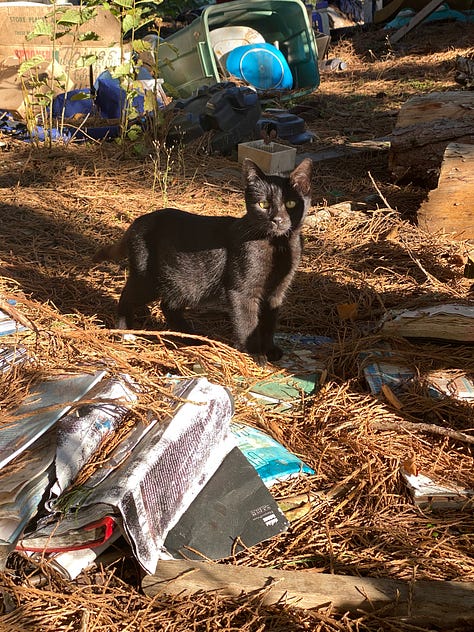
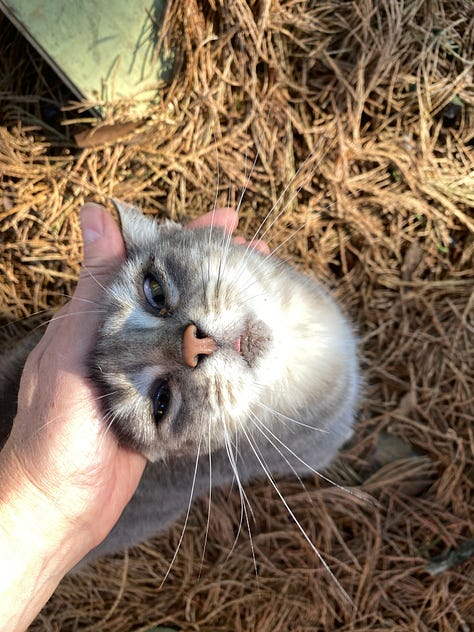
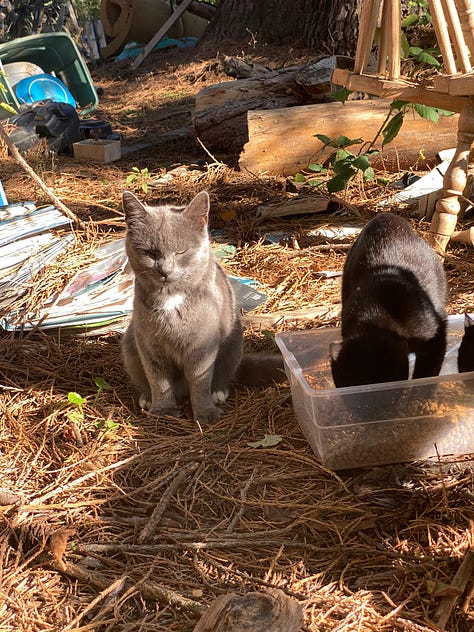
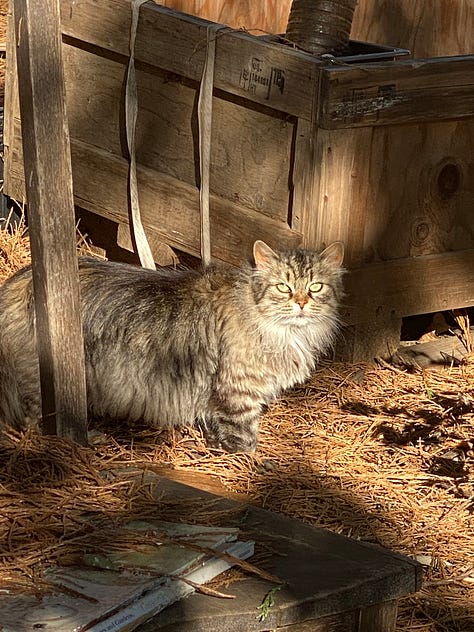
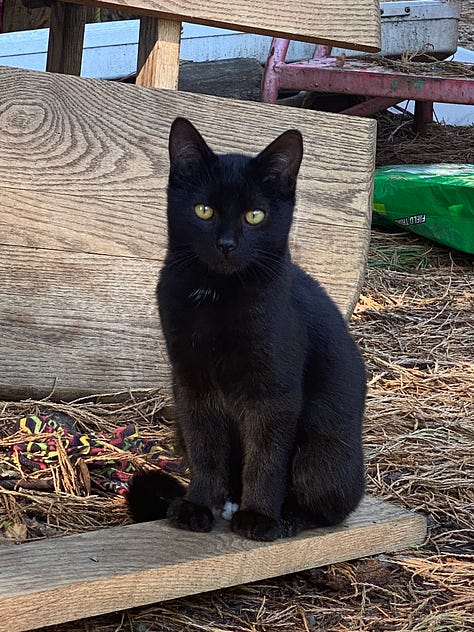
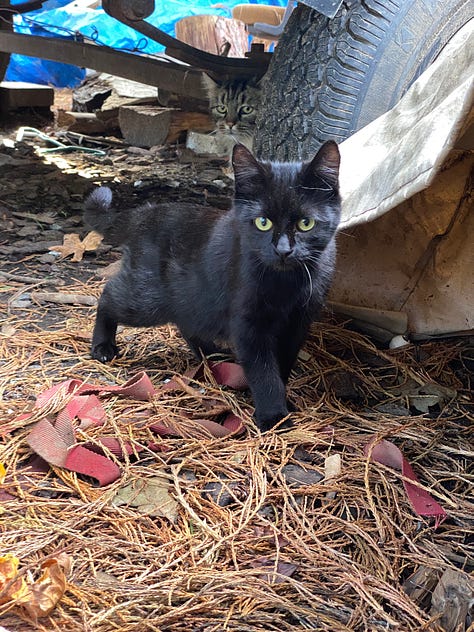
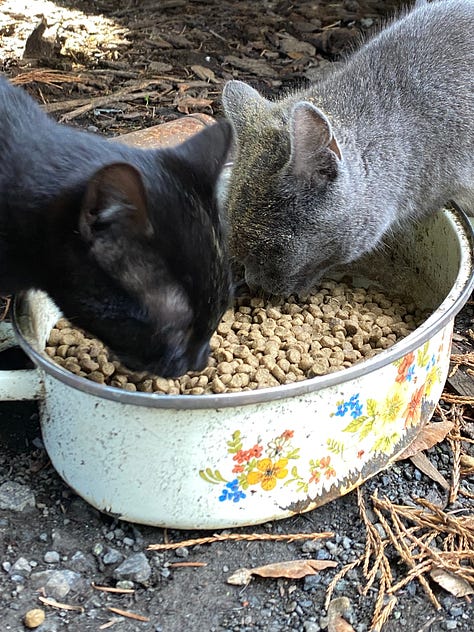
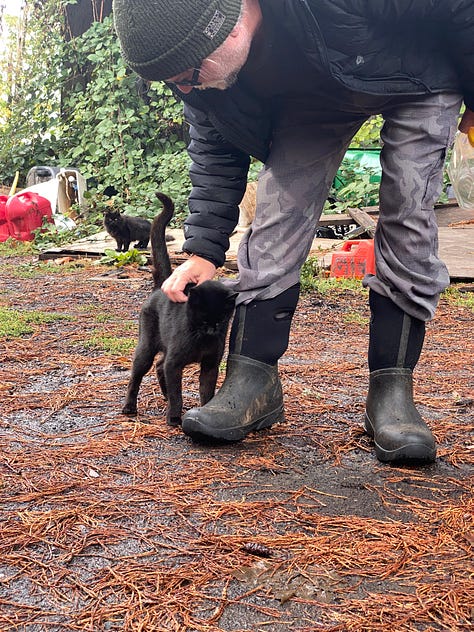
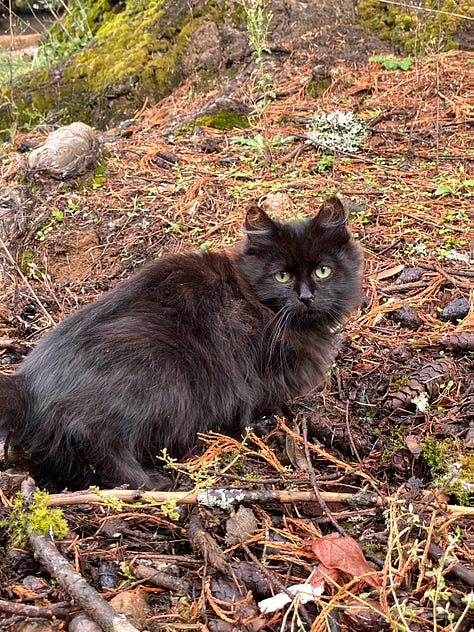
P.S. I have an exciting announcement! Empress Editions has acquired the world rights to my memoir Unfixed: A Memoir of Family, Mystery, and the Currents that Carry You Home, to be released in bookstores everywhere on October 14, 2025.
Sometimes dreams do come true. What began eight years ago as a deep dive into my past and the narrative rhythms that shaped me has grown into something I never expected: a published memoir (, a sharing, and—most astonishingly—a community of readers-turned-friendships I cherish beyond words. Your support and encouragement gave me the courage to write, to share, and to believe in this story’s value. This is more than a memoir; it’s a beacon for anyone seeking answers, solace, or simply the courage to keep exploring life’s mysteries. I hope this memoir will stay with you long after the last page, offering a story as profound and untamed as the ocean itself.
Sign up for my memoir’s waitlist today!



Thanks for this story! So necessary in how we interact with each other, too.
What an inspiring unfixing of a cat-aclysmal unshelter. I love the reminder of how animals grieve and care for their beloved deceased kin. The apparent inefficiency of nature may be nurturing another part of being unseen by the anthropocentric mind. Efficiency is literally the production of an output in relation to the input, the accomplishment of something in the fastest and easiest way with the least hassle. This stands in direct contradiction to the Tao, where 'the way is the destination'. What if love, compassion, and kindess are more 'efficient' in generating life, than a 'cost-effective final solution'? Not to mention the wonderful stories which are now here to stay, to nurture the collective human and animal-soul...